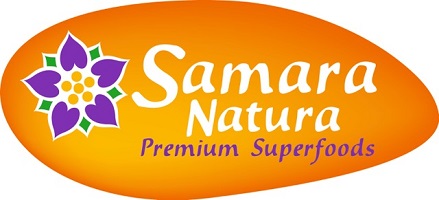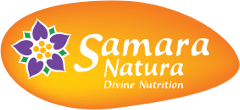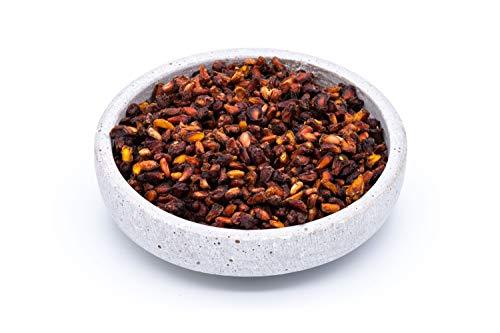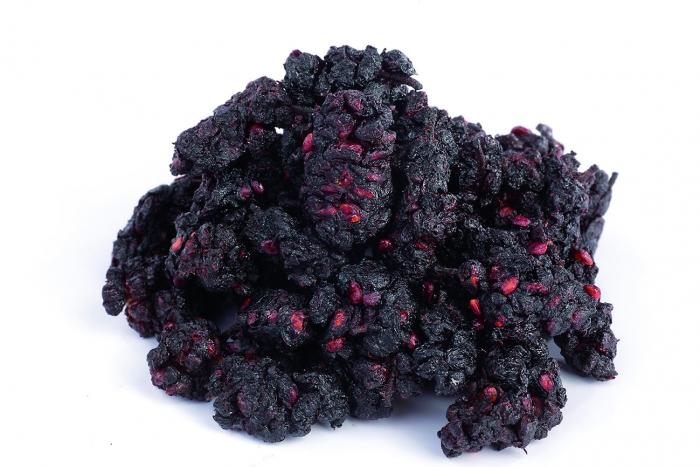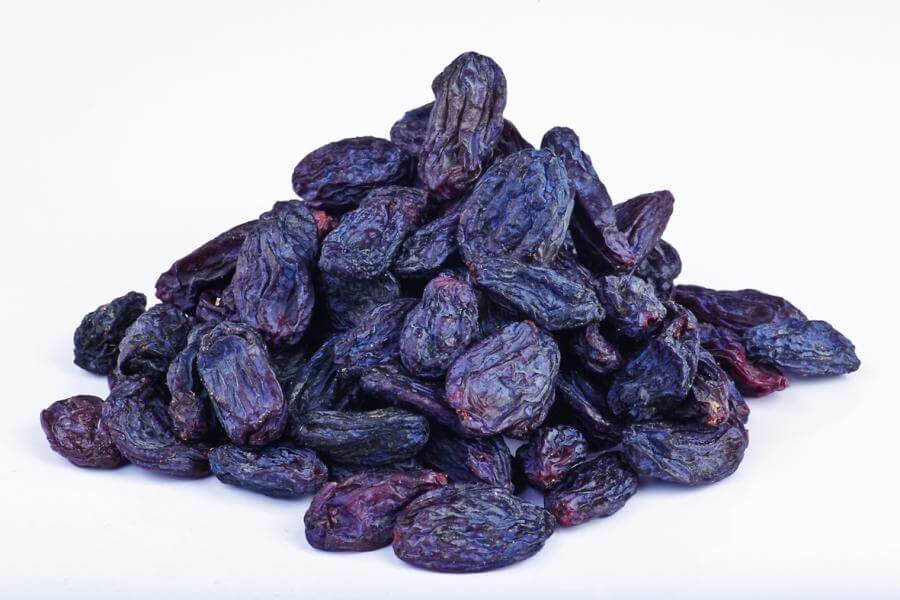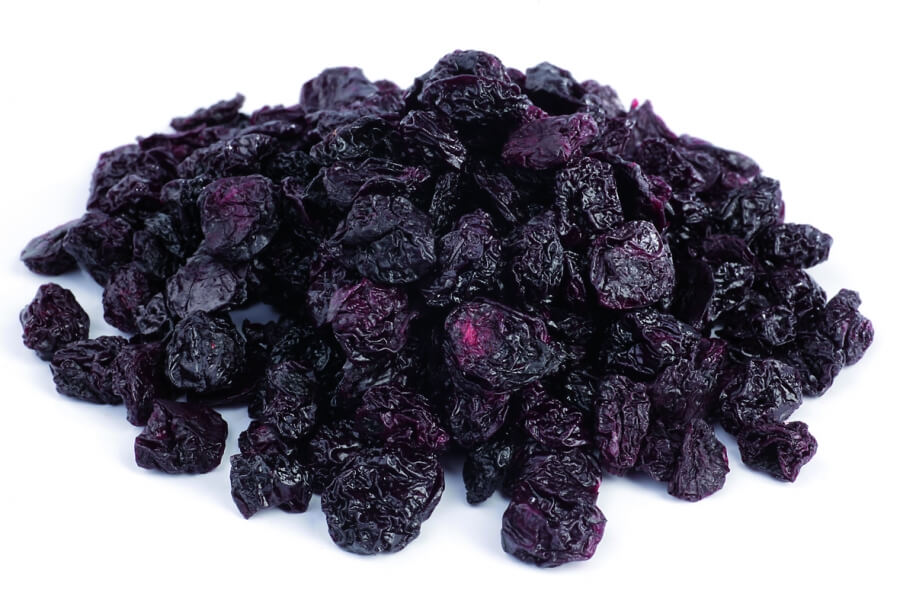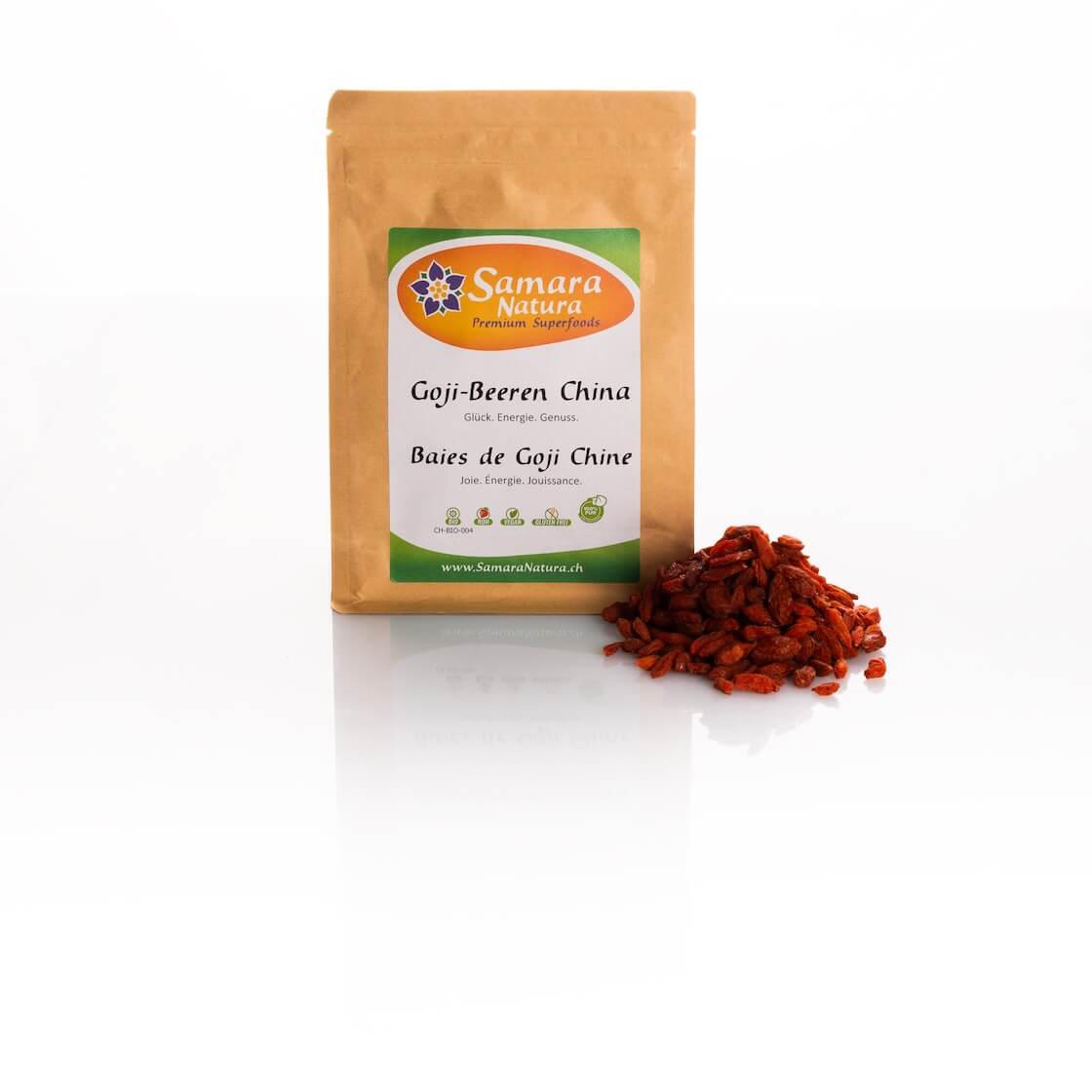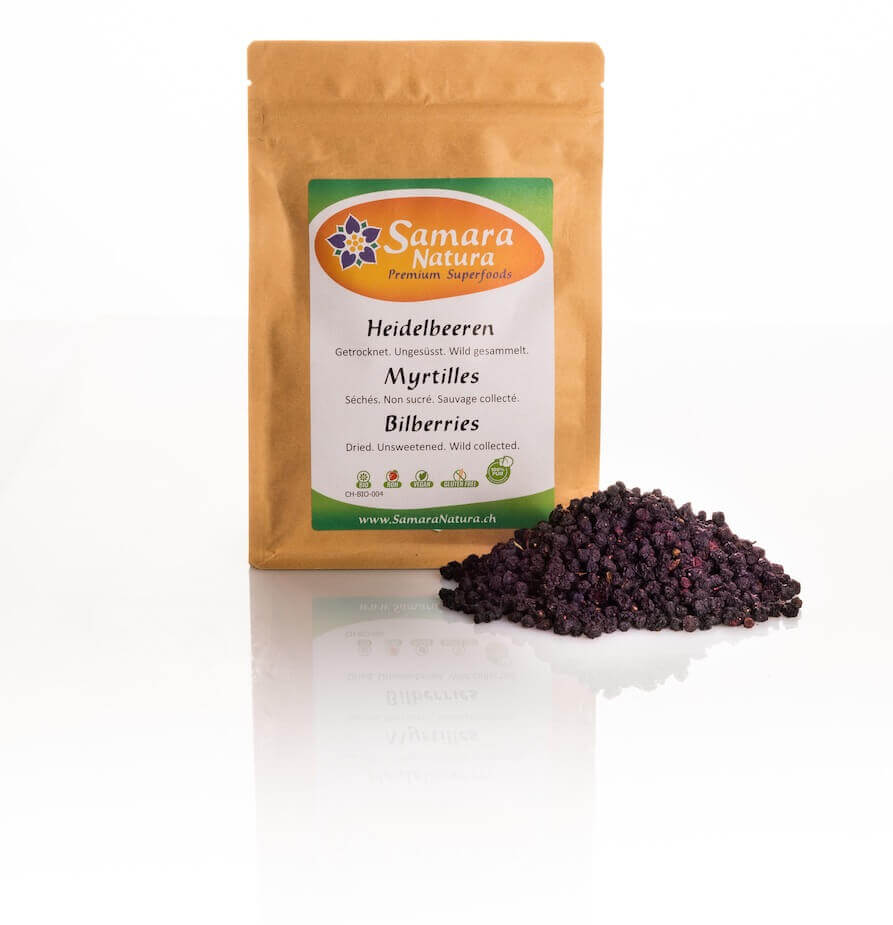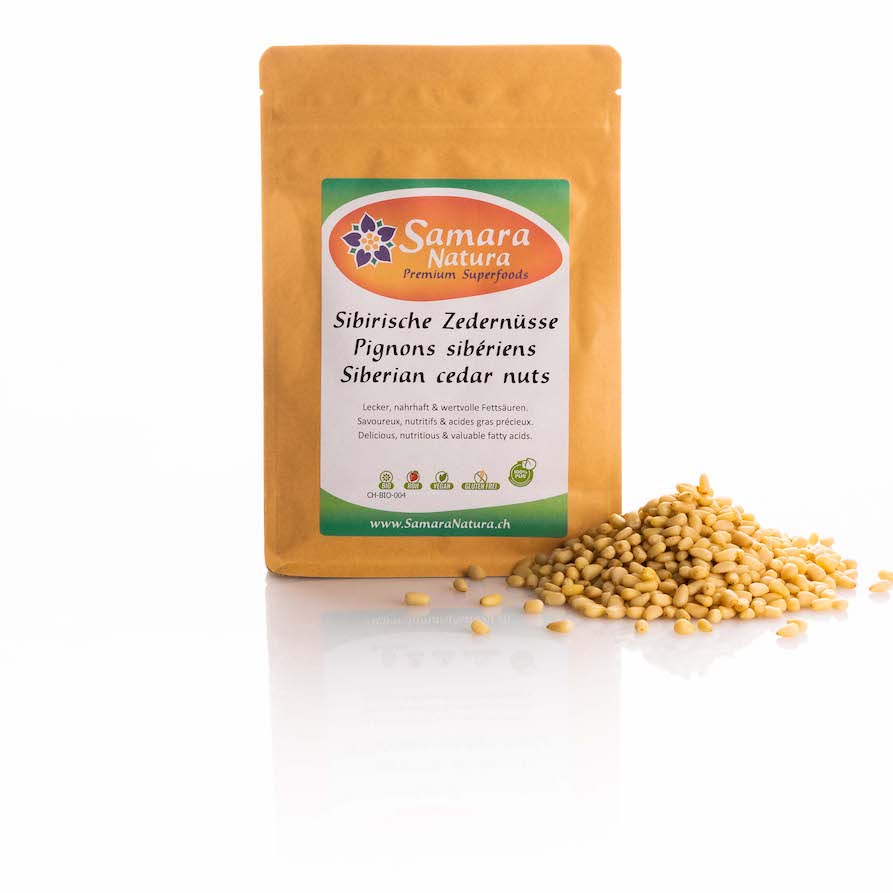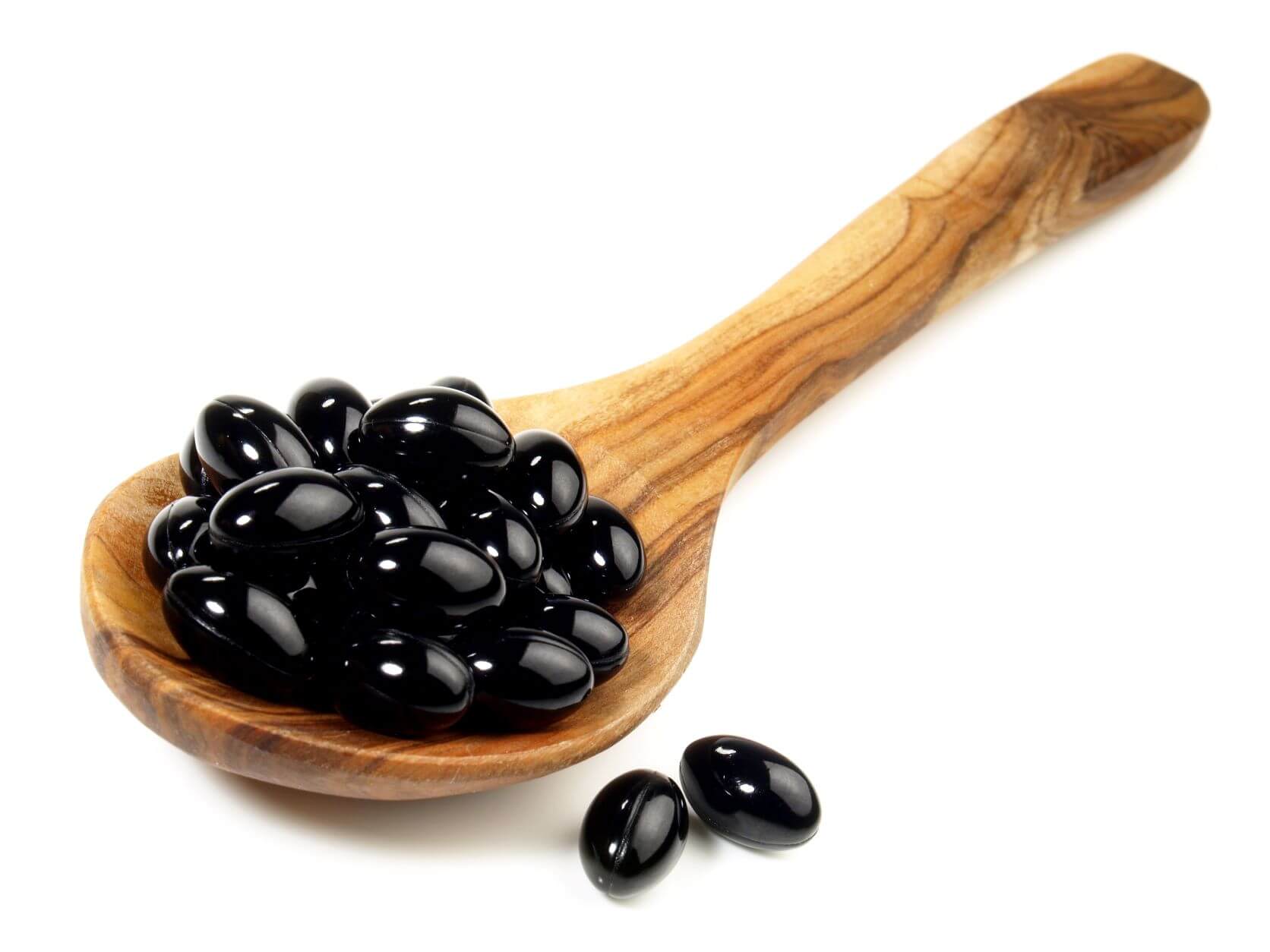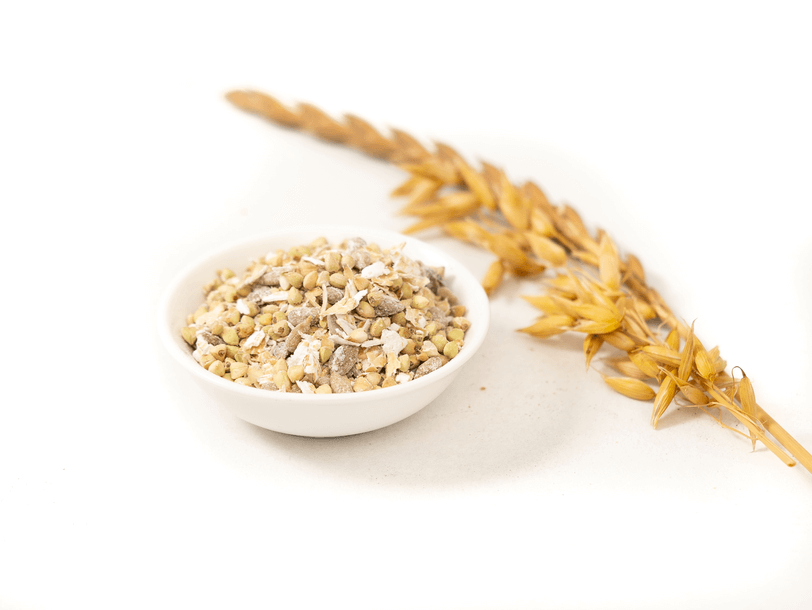| Quantity | Unit price | Base price |
|---|---|---|
| To 2 |
CHF 15.00*
|
CHF 10.00* / 100 Gramm |
| From 3 |
CHF 14.25*
|
CHF 9.50* / 100 Gramm |
Available, delivery time: 1-4 days
Product information "Pomegranate Seeds Organic"
Why consume pomegranate seeds?
Not so long ago, Japanese researchers discovered that pomegranates are rich in phyto-oestrogens, especially oestrone. Oestrone is a mildly effective oestrogen that is similar to the female sex hormones. The pomegranate also contains a lot of vitamin C, potassium, antioxidants and fibre. The pomegranate also has a stimulating effect, which is particularly beneficial for chronic fatigue, lack of energy, infections and inflammation. Pomegranates contain large quantities of antioxidant secondary plant substances such as polyphenols (flavonoids, tannins).
What makes our pomegranate seeds special?
These premium organic pomegranate seeds are particularly dark purple, almost purple in colour and very rich in antioxidants. The pomegranate seeds are characterised by a red to dark purple colour. When they are dried, the moisture in the segments is lost and the kernel with the fruity skin remains. The stone is crispy and edible. The surrounding flesh and skin give the kernels an aromatic, characteristic fruity flavour.
Origin and exceptional production
The pomegranates are harvested by hand when fully ripe, piece by piece, and are peeled by hand and sun-dried on the same day by the Silk Road Organik Foods processing company. The drying process used is a very environmentally friendly solar drying method, which is also extremely gentle on the product. Around 1 kg of fresh organic fruit is needed to produce 100 g of pomegranate seeds, i.e. a ratio of 1:10!
These organic Fairtrade pomegranate seeds come from a remote mountain village in the Varganza Valley in the south of Uzbekistan. They ripen there on trees in the mountainous regions around Samarkand. The area is extensively certified organic and Fairtrade and is farmed by the FAIRTRADE farmers living there. The farmers belong to a large Fairtrade community, which is made up of 3 groups, Dustkul Bogi, Turkiston Gulba and Turob Bobo. They include around 1000 individual farmers and their families. Thanks to the co-operation with Fairtrade, the farmers can offer their families a secure income and their children a new perspective.
In Austria, the pomegranate seeds are de-pressurised. The combination of pressure and time ensures that the pomegranates are absolutely pest-free.
The history of the pomegranate
The pomegranate has been cultivated for over 5000 years, making it one of the oldest plants known to mankind. The name pomegranate goes back to the Romans (lat. granae = seeds, grains; lat. granatus = granular, rich in seeds). The pomegranate has always been a symbol of life and fertility.
The pomegranate has a history steeped in legend: it probably helped to trigger the Trojan War, in Christian culture the pomegranate is the symbol of Mary's fertility, it is also regarded as a symbol of life and the Egyptians added it to mummies. To this day, it is considered an aphrodisiac and is an ingredient in countless love drinks.
Tips for use
Refine your muesli, salads or use the pomegranate seeds for baking. Pomegranate seeds are also suitable as a snack and create an incredible explosion of flavour, especially when combined with nuts and cocoa beans.
Nutritional values of organic pomegranate seeds per 100g
Energy 308 kcal / 1289 kJ
Fat 2.4g
of which saturated fatty acids 0.6g
Carbohydrates 64.4g
of which sugar 64.4g
Protein 2.8g
Dietary fibre 8.8g
Salt <0.01g
Login
